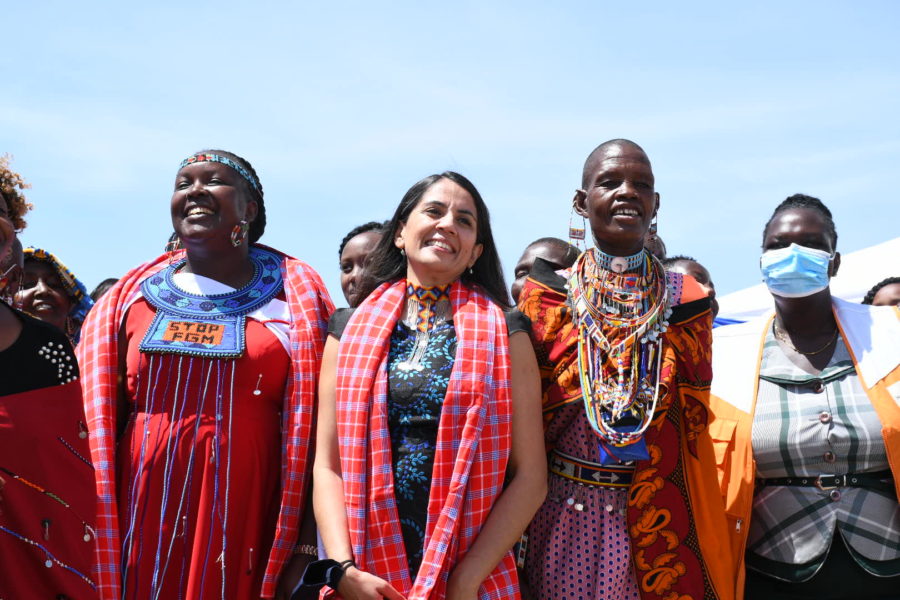9th December 2021 Geneva
Human Rights Day 2021

On 10 December each year, we celebrate Human Rights Day. To many, this tradition marks a commemoration of the adoption of the Universal Declaration of Human Rights and the evolution of the international human rights architecture since 1948. For others, this day marks an annual moment to reflect on the global situation of human rights. For me, this day also constitutes an important reminder of the tireless work of human rights defenders, civil society, and journalists in bravely shining a spotlight on human rights violations and abuses around the world. Without them, so many voices would be left unheard. We all have a responsibility to ensure that their vital work continues.
As we take stock of 2021, it is clear that the international community has faced considerable challenges. The reversal of hard-won progress on women’s and girls’ rights in Afghanistan is heart-breaking. There is no let up after a decade of conflict in Syria. The killings of protestors on the streets of Myanmar, and the political arrests in Belarus have been shocking. Ethiopia faces considerable unrest and women and girls face appalling sexual violence. Media freedom and freedom of expression more widely are under threat in every corner of the world. Shrinking civic space is stifling journalists, human rights defenders and other independent voices to fully and equally participate in society.
The COVID-19 pandemic has also brought progress on our global efforts towards achieving gender equality into sharp relief. Violence against women and girls, including female genital mutilation has sharply risen. UNFPA estimates that the pandemic will cause ten to thirteen million additional cases of child early and forced marriage by 2030.
Such threats to the enjoyment of human rights, democracy and open societies are also being played out at the multilateral level in Geneva, New York and elsewhere. It has reinforced the crucial need to continue working with our partners to uphold the international human rights architecture and address those who seek to undermine it. Throughout this year at the Human Rights Council, we worked with groups of countries to draw attention to the full range of violations and abuses committed in Syria and secured a mandate for the UN to collect evidence to support justice for past violations in Sri Lanka. With partners, we strongly condemned human rights violations in Xinjiang, China and called for a Special Session of the Council in response to the military takeover in Sudan, securing a consensus resolution.
When I ask young girls that I meet during my country visits ‘what is the one thing that will make a positive difference to their lives?’, ‘education’ is almost always their answer. I am delighted that the UK in partnership with the UAE secured a landmark resolution at the Human Rights Council calling upon States to provide at least 12 years of quality education for all girls. A commitment endorsed by 97 States.
It is also important to recognise important strides forward at the national level. Sierra Leone became the latest country to abolish the death penalty. Chile and Switzerland adopted legislation to legalise same-sex marriages while the Botswana Court of Appeal upheld a ruling decriminalising same-sex relationships. Uzbekistan drew praise from UN human rights mechanisms for its repatriation and reintegration of women and children from Syria, Iraq and Afghanistan. Democracy in Gambia was strengthened as they held their first free and open elections following two decades of dictatorship. In the UK, Parliament voted to raise the minimum age of marriage to 18 in England and Wales in an effort to end child marriage. We are also strengthening supply chain transparency in the Modern Slavery Act to tackle modern slavery and human trafficking globally.
As I sit here in Geneva, I look back over the last 12 months to my country visits to Poland, Kenya, Mali and Slovakia, and my virtual visits to Bahrain, Colombia, Uzbekistan and Ukraine. My engagement with communities and activists brings to life the very real challenges that exist, the progress that has been made, but also the work that needs to continue – both multilaterally and through UK’s direct support. Next year the UK will host the first ever global conference “Safe To Be Me” to understand and tackle the challenges faced by the LGBTI+ community around the world. We are also calling for international action on conflict-related sexual violence.
We must continue our work to actively call out human rights violations and abuses wherever they occur. As the Foreign Secretary said this week, we will pursue this work through building a network of liberty. A network that includes other countries who want to work with us in upholding democracy and open societies. Free media, thriving civil society and human rights defenders are crucial to this effort. Working together, let’s support their efforts, not just on Human Rights Day, but every day of the year.